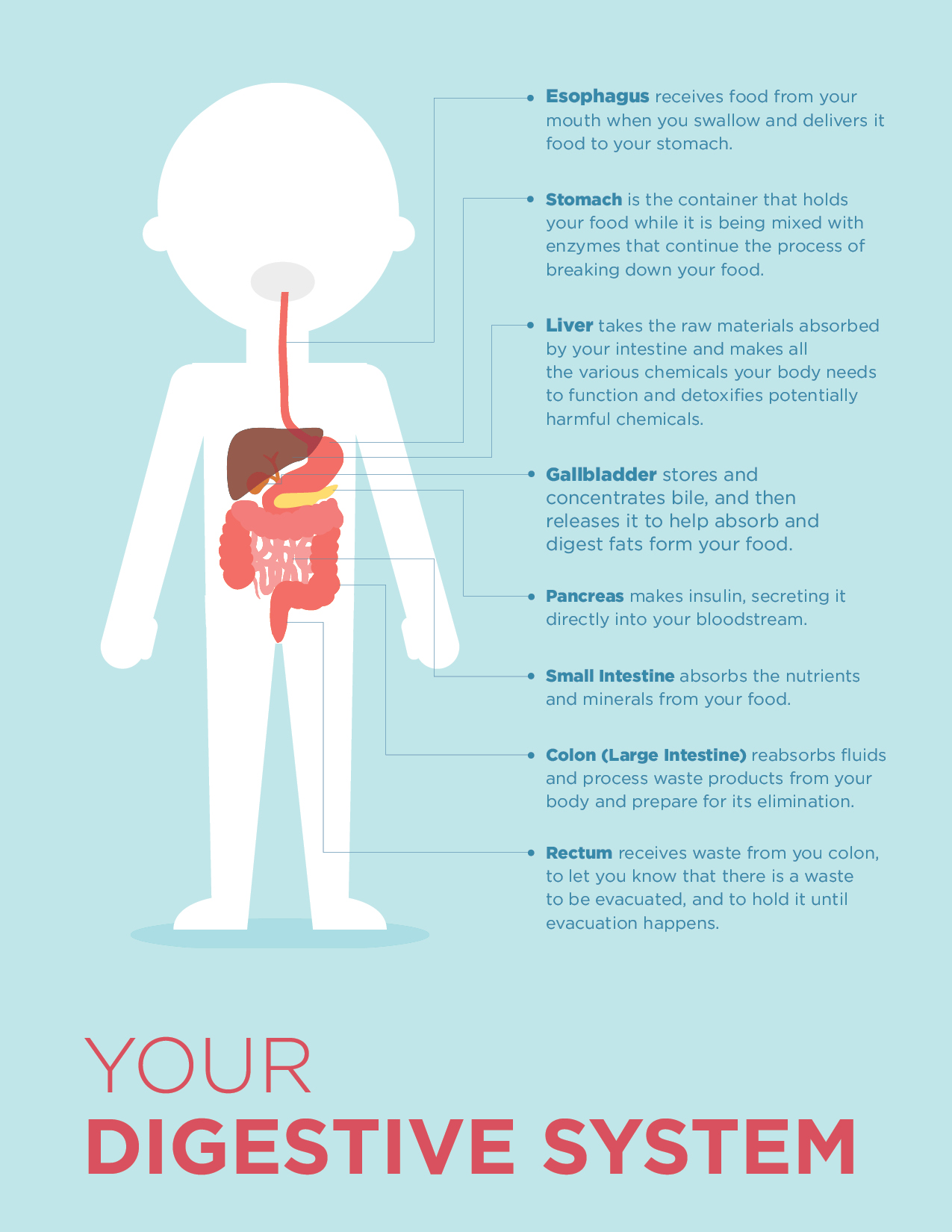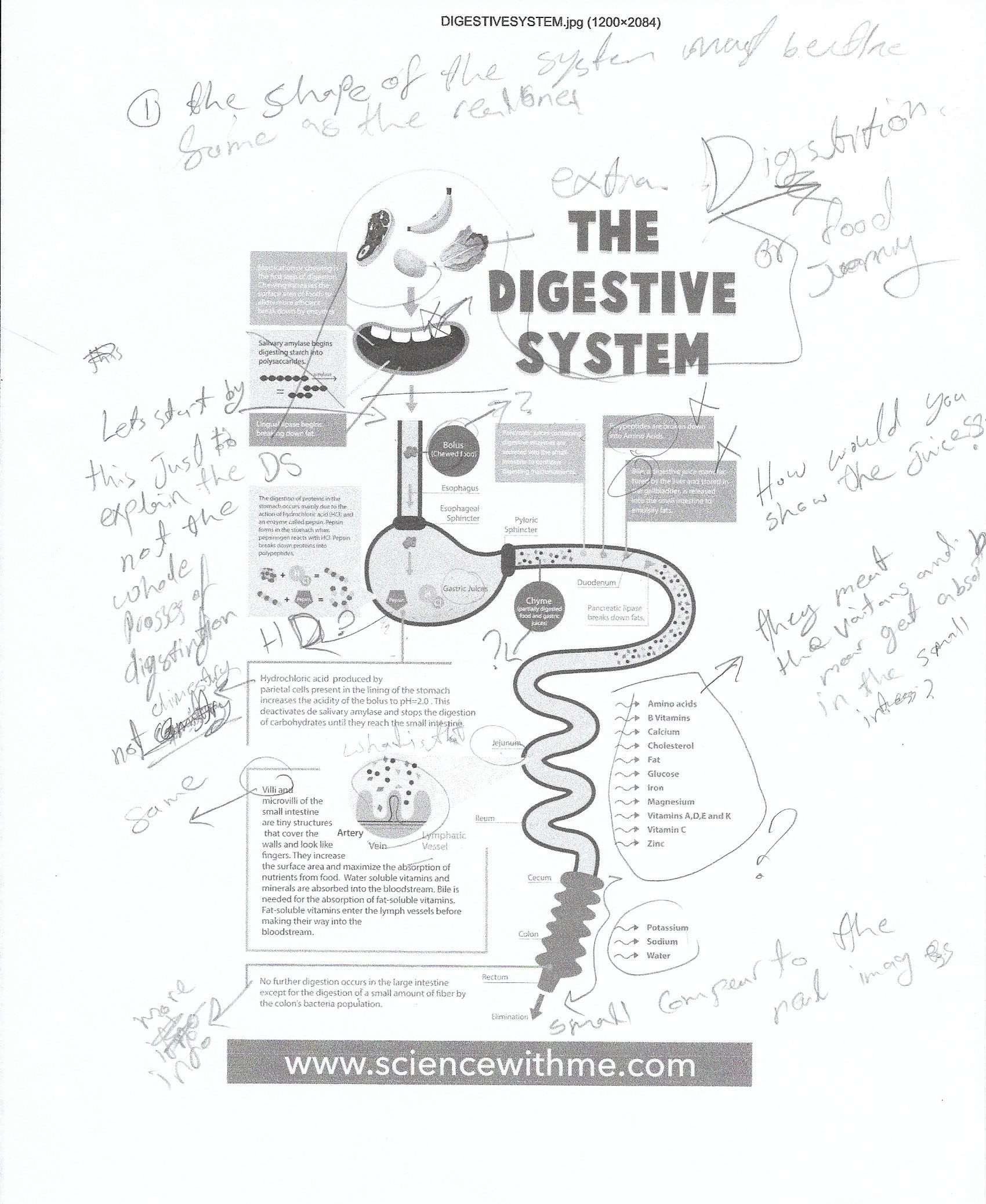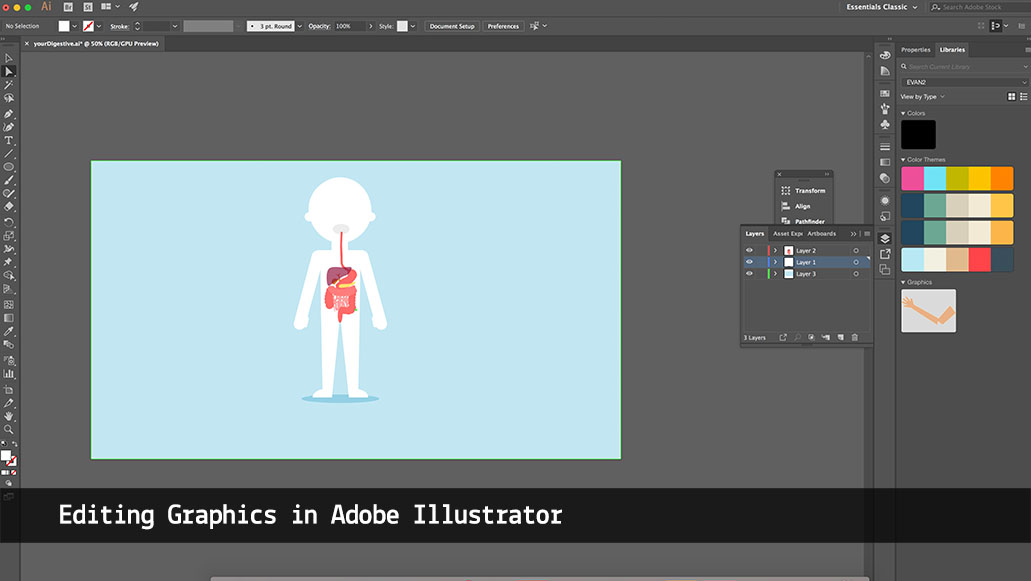The aim of this project to redesign an already exciting visual explanation for the digestive system for children. My goal in this design is to eliminate the extraneous load that been created in the current design. I will be focusing on highlighting the coherence principle by introducing the digestive system organs with the main function of each one. The objective is to introduce the digestive system, not the digestion prosses as this would be a different learning goal. Also, I think it is very important to show the real shape of the digestive system to children instead of a representative image to establish a connection for a future learning objective that related to the same topic.
Elementary school age children
No geographical location
English speakers
Children would be able to:
. List and define the digestive system organs
. Describe the main function of the digestive system organs
. Describe the location of the digestive system organs
The cognitive theory of multimedia learning
Principles for reducing extraneous processing in multimedia learning
Programs: Adobe Illustrator, Adobe inDesign
Category: Visual Design, Graphic Design
Created: Fall 2018
Mayer, R. E., & Fiorella, L. (2014). [Principles for reducing extraneous processing in multimedia learning: Coherence, signaling, redundancy, spatial contiguity, and temporal contiguity principles]. In R. Mayer (Ed.), The Cambridge Handbook of Multimedia Learning (2nd ed., pp. 279–315). Cambridge: Cambridge University Press.
The Digestive System https://my.clevelandclinic.org/health/articles/7041-the-structure-and-function-of-the-digestive-system
Designed by Manal Alyaba
Original Infographic by http://sciencewithme.com/digestive-system-for-kids/#more-3315
Original Graphics by www.freepik.com



